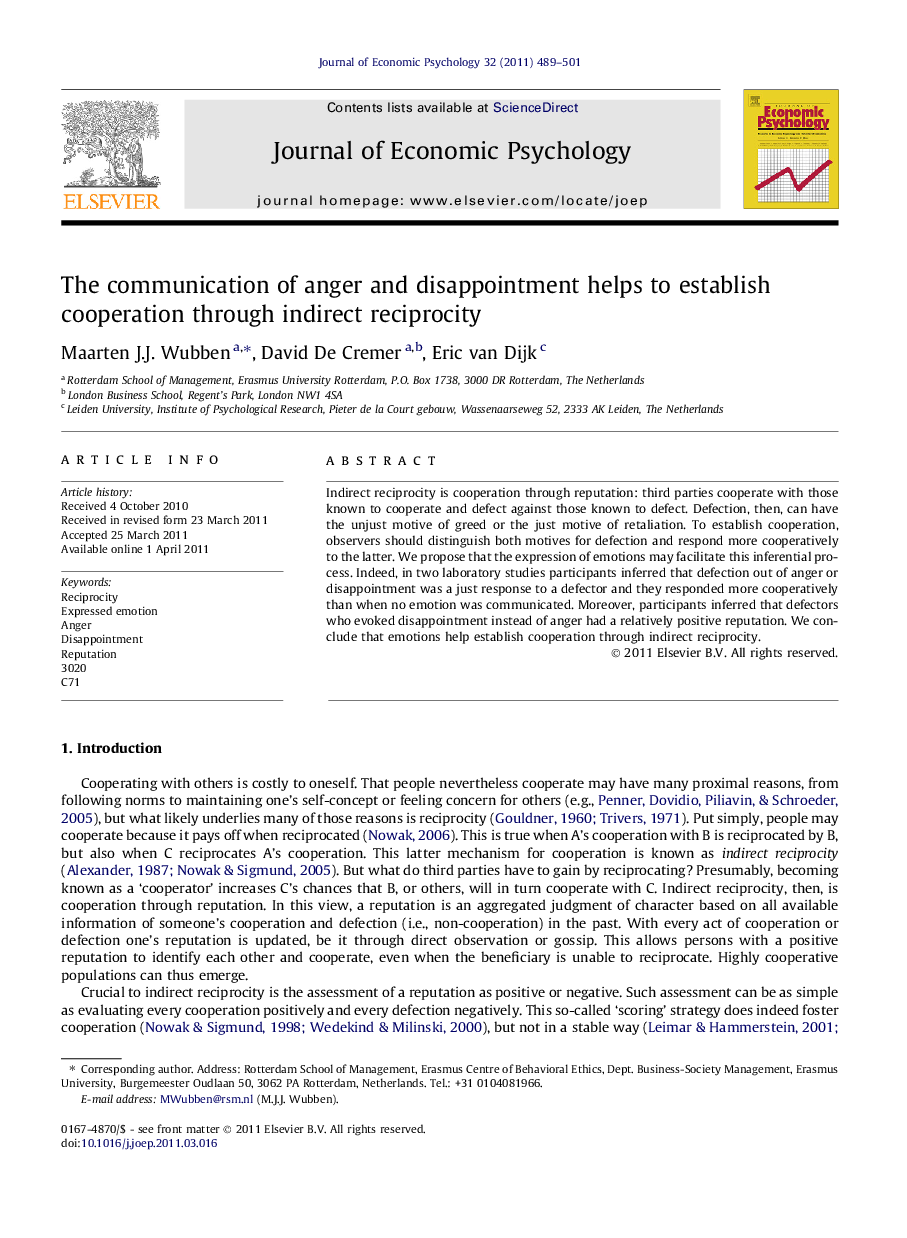| کد مقاله | کد نشریه | سال انتشار | مقاله انگلیسی | نسخه تمام متن |
|---|---|---|---|---|
| 885246 | 912668 | 2011 | 13 صفحه PDF | دانلود رایگان |

Indirect reciprocity is cooperation through reputation: third parties cooperate with those known to cooperate and defect against those known to defect. Defection, then, can have the unjust motive of greed or the just motive of retaliation. To establish cooperation, observers should distinguish both motives for defection and respond more cooperatively to the latter. We propose that the expression of emotions may facilitate this inferential process. Indeed, in two laboratory studies participants inferred that defection out of anger or disappointment was a just response to a defector and they responded more cooperatively than when no emotion was communicated. Moreover, participants inferred that defectors who evoked disappointment instead of anger had a relatively positive reputation. We conclude that emotions help establish cooperation through indirect reciprocity.
► Anger and disappointment signal who have defected in indirect reciprocity.
► Expressing anger or disappointment helps justify one’s defection against a defector.
► Defection out of anger or disappointment elicits relatively cooperative responses.
► Disappointment signals that a defector’s reputation is more positive than does anger.
► Anger and disappointment function as lubricants of indirect reciprocity.
Journal: Journal of Economic Psychology - Volume 32, Issue 3, June 2011, Pages 489–501